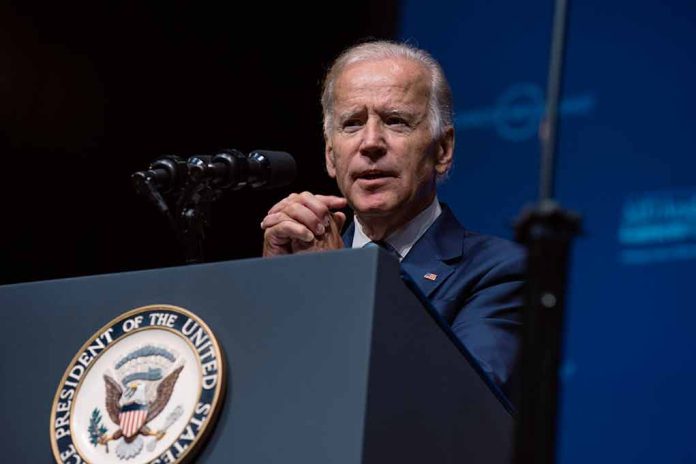
President Biden’s latest response to a question on Middle East peace efforts has left many questioning his capacity to foster diplomacy in the region.
At a Glance
- Biden’s envoy Amos Hochstein showed optimism for a ceasefire between Israel and Hezbollah.
- Believes a peace deal is possible soon.
- Biden responded skeptically, contradicting Hochstein’s positive outlook.
- Encounter highlights potential challenges in Biden’s approach to foreign policy.
Optimism in the Middle East
Amos Hochstein, President Biden’s envoy, expressed optimism regarding a ceasefire between Israel and Hezbollah. This marked a hopeful period for Middle East peace dialogue, with the White House showing belief in an achievable peace deal. Hochstein’s optimism became a focal point as hopes rose for a diplomatic success that could stabilize the region.
Biden’s response during a recent press interaction stood in sharp contrast. As a journalist raised inquiries regarding the feasibility of securing a decisive deal, Biden’s reaction seemed to cast doubt on such prospects. His response indicated skepticism, diverging from Hochstein’s earlier positivity.
A Verbal Misstep in Diplomatic Talks
In an Oval Office exchange, Israeli journalist Neria Kraus asked Biden, “Do you think you can get a hostage deal by the end of your term?” The President’s reply, perceived as a joking threat, suggested she “get hit by the camera behind you,” an unexpected retort that drew criticism and concerns over his handling of sensitive topics.
Reporter: “Do you think you can get a hostage deal by the end of your term?”
Biden: “Do you think that you can get hit in the head by the camera behind you?”pic.twitter.com/rxhrQ8LQTK
— TheBlaze (@theblaze) November 12, 2024
With video evidence showcasing Biden’s demeanor, the episode raises questions about his approach amidst complex foreign policy situations. These concerns underscore the challenges facing Biden’s leadership in securing peaceful resolutions.
Implications for International Relations
The consequences of Biden’s remarks extend beyond mere conversation. Critics argue that nuances in diplomatic language matter greatly, especially in conflict zones. As efforts to negotiate peace in the Middle East continue, the incident has highlighted the fragility of such diplomatic endeavors under the current administration.
“Do you think that you can get hit in the head by the camera behind you?” Biden remarked
While the situation remains fluid, each interaction can influence international relations significantly. The administration’s response to these perceptions could be pivotal in regaining confidence and ensuring serious diplomatic measures continue to progress. This story remains central to understanding Biden’s foreign policy direction.
Sources:
Lame Duck Commander-in-Chief Suggests Bodily Harm To Journalist Asking Tough Question













